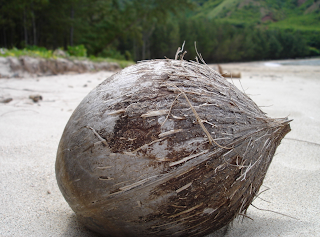The infamous coconut oil is back the news! I’m not a coconut oil hater, nor do I believe the hype that its gazillion benefits are all fluff. On the contrary, I love coconut oil and use it for many things, including face moisturizer, hair wash, cooking, body lotion, massage lotion, and (we’re all thinking it!) lube. At least, I used to use it for lube until I started receiving information that coconut oil could change the pH level of the vajayjay, causing infections like bacterial vaginosis (BV) or vaginal candidiasis. So, before continuing to use the CO (coconut oil) as a lube, I needed to find out more about its connection to medical issues. But there’s still plenty of sexual activity that doesn’t touch the vajayjay. In fact, the funniest story I have about lube has to do with a hand job.
That’s One for the Record Books
What the Studies Say
 Now, is the coconut oil hazardous to the lady parts? A 2013 study by Brown, et al., for the American College of Obstetricians and Gynecologists sought to “estimate the frequency, distribution, and consistency of vaginal and rectal practices and products and their association with reproductive tract infections…” and the reported primary objective to “…estimate the risk of bacterial vaginosis and vaginal candidiasis in relation to intravaginal practices.” In other words, the researchers wanted to determine whether and how the products we use sexually create medical issues, including vaginal infections. Keep in mind that this study did not specifically focus on coconut oil, but rather on a variety of products, including vaginal washing, petroleum jelly, lubes, and oils in general. Also note that that only 141 women of various ethnic backgrounds enrolled and completed the study (Brown, et al). Although a significant number of women, about the size of a small wedding, this is an extremely small sample size compared to the number of women in the United States, much less the world.
Now, is the coconut oil hazardous to the lady parts? A 2013 study by Brown, et al., for the American College of Obstetricians and Gynecologists sought to “estimate the frequency, distribution, and consistency of vaginal and rectal practices and products and their association with reproductive tract infections…” and the reported primary objective to “…estimate the risk of bacterial vaginosis and vaginal candidiasis in relation to intravaginal practices.” In other words, the researchers wanted to determine whether and how the products we use sexually create medical issues, including vaginal infections. Keep in mind that this study did not specifically focus on coconut oil, but rather on a variety of products, including vaginal washing, petroleum jelly, lubes, and oils in general. Also note that that only 141 women of various ethnic backgrounds enrolled and completed the study (Brown, et al). Although a significant number of women, about the size of a small wedding, this is an extremely small sample size compared to the number of women in the United States, much less the world. Roses are Red, Violets are Blue, Coconut Oil as a Lube?
No matter your decision about coconut oil as a lube, I highly recommend my affiliate, AloeCadabra, for other safe lubricant options. Check out pina colada for added flavor and fun or peppermint for just the right amount of tingle. Extra sensitive skin? No worries! They have unflavored as well! For an extra bonus, use code AFGETER at check out for free shipping and 25% off your purchase!

Reference:
Brown, J. M., PhD, MPH, Hess, K. L., PhD, MPH, Brown, S., MD, Murphy, C., PGDip, Waldman, A. L., MPH, & Hezareh, M., PhD. (2013). Intravaginal Practices and Risk of Bacterial Vaginosis and Candidiasis Infection Among a Cohort of Women in the United States. Obstetrics and Gynecology,121(4), 773-780.

No comments:
Post a Comment